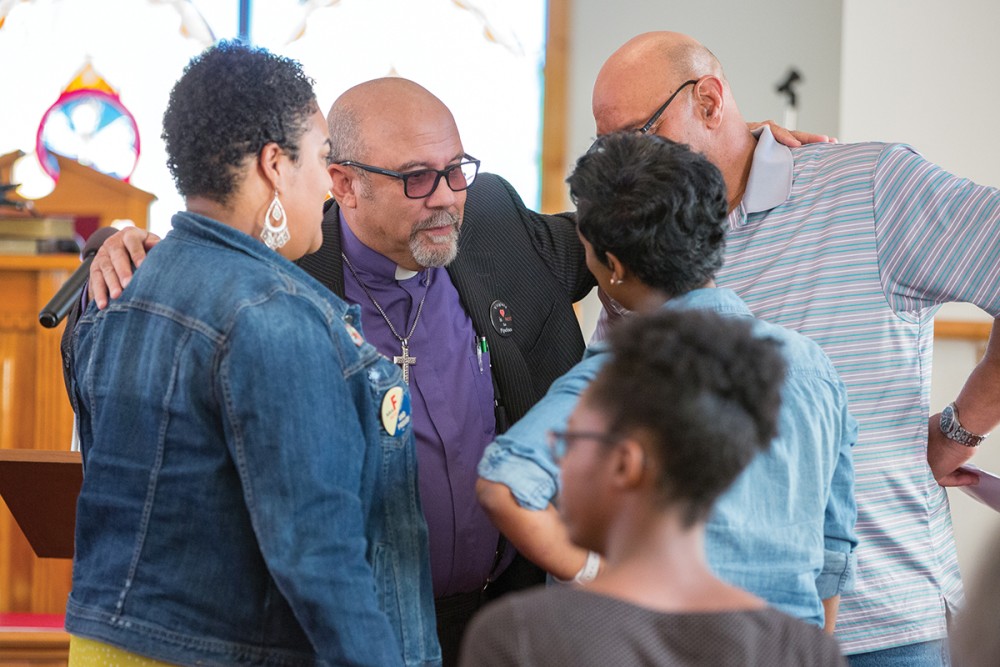A church is fighting back against the Atlantic Coast Pipeline
And it has some prominent allies.

You’ve probably heard the statistics: the earth’s surface is more than 1.5 degrees Fahrenheit hotter than it was a century ago. Scientists predict that with the current upward trend in greenhouse gas emissions, the increase could more than double by 2050 and might reach as high as 10 degrees by 2100. At that point, Virginia temperatures will be like those of Florida.
You can’t have that kind of temperature hike and the climate changes that go with it—droughts, floods, soil erosion, and rising seas pushing salt water onto fertile coastal plains—without affecting agriculture. By the end of the century, studies predict, worldwide vegetable crop yields could drop by more than a third, and production of corn—which feeds much of the planet’s livestock—could be cut in half.
What can any of us do about it? How do we force big business to move toward solar and wind energy rather than continuing to burn coal, oil, and shale gas?





